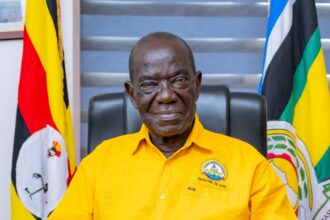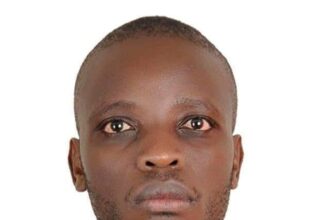The regional president of Ethiopia’s Amhara state and his top adviser were killed in an attempted coup in which the country’s army chief was also shot dead, the office of Prime Minister Abiy Ahmed said.
Spokeswoman Billene Seyoum told journalists a “hit squad” led by Amhara’s security chief Asaminew Tsige burst into a meeting on Saturday afternoon and shot regional president Ambachew Mekonnen and his adviser Ezez Wasie.
The men were “gravely injured in the attack and later died of their wounds,” she said.
“Several hours later in what seems like a co-ordinated attack, the chief of the staff of the national security forces Seare Mekonnen was killed in his home by his bodyguard.”
Also shot dead was a retired general who had been visiting him, Billene added.
The bodyguard has been apprehended while Asaminew is still on the loose, sources said.
Analysts said the incident showed the seriousness of the political crisis in Ethiopia, where efforts by Abiy to loosen the iron-fisted grip of his predecessors and push through reforms has unleashed a wave of unrest.
“These tragic incidents unfortunately demonstrate the depth of Ethiopia’s political crisis,” said International Crisis Group analyst William Davison.
“It is now critical that actors across the country do not worsen the instability by reacting violently or trying to exploit this unfolding situation for their own political ends,” the expert said.
Residents in Amhara’s capital Bahir Dar said late on Saturday there was gunfire in some neighbourhoods and some roads had been closed off.
The US embassy issued alerts about reported gunfire in the capital, Addis Ababa, and violence around Bahir Dar.
Early on Sunday, Brigadier General Tefera Mamo, the head of special forces in Amhara, told state television that “most of the people who attempted the coup have been arrested, although there are a few still at large.”
Since coming to power last year, Abiy has tried to spearhead political reforms to open up the once isolated, security-obsessed country of 100 million people on the Horn of Africa.
He has released political prisoners, lifted bans on political parties and prosecuted officials accused of gross human rights abuses, but his government is battling mounting violence.
Ethnic bloodshed – long held in check by the state’s iron grip – has flared up in many areas, including Amhara, where the regional government was led by Ambachew Mekonnen.
“Since Abiy Ahmed took power and the country moved towards democratisation … there have been different forms of mobilisations, by different actors, particularly nationalists.” Awol Allo, a lecturer in law at Keele University, told Al Jazeera.
“[In] Amhara regional state, there is this feeling that they were marginalised, and these individuals that were suspected to be behind the coup recently said that Amhara people have never been subordinated.. so there is this sense of grievance and victimhood that is driving the nationalist movements,” he added.
Ethiopia is due to hold a national parliamentary election next year. Several opposition groups have called for the polls to be held on time despite the unrest and displacement.
Do you have a story in your community or an opinion to share with us: Email us at Submit an Article






